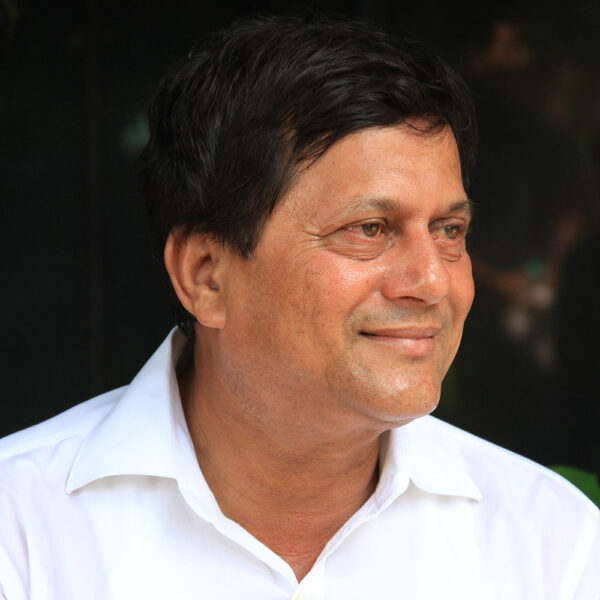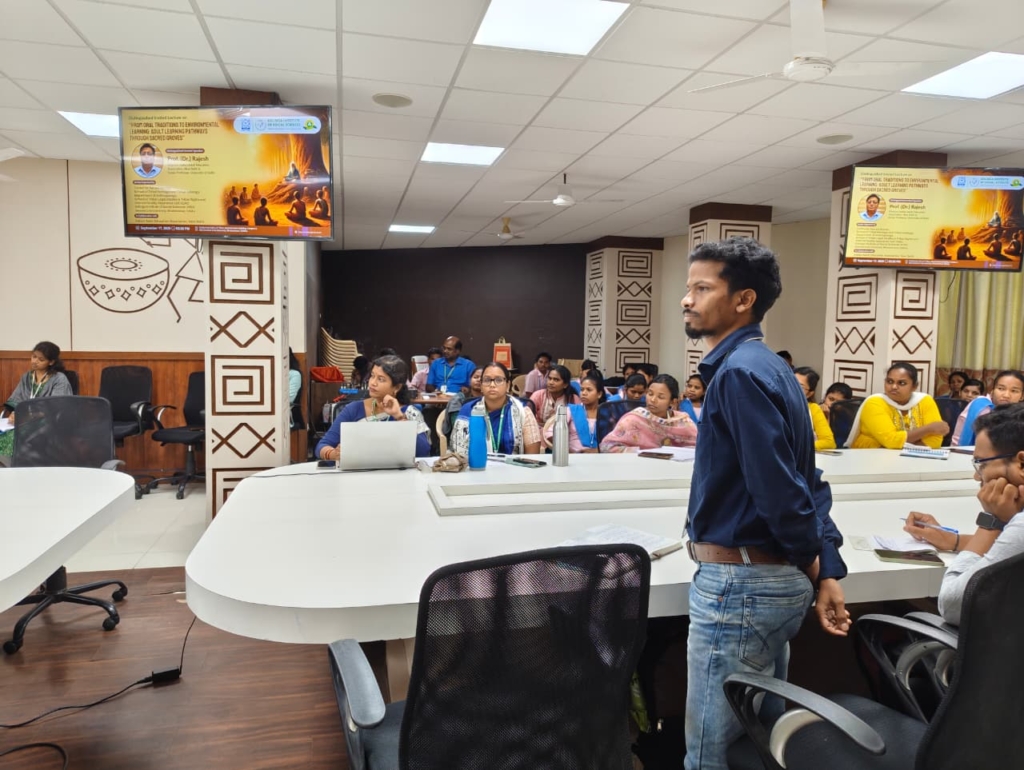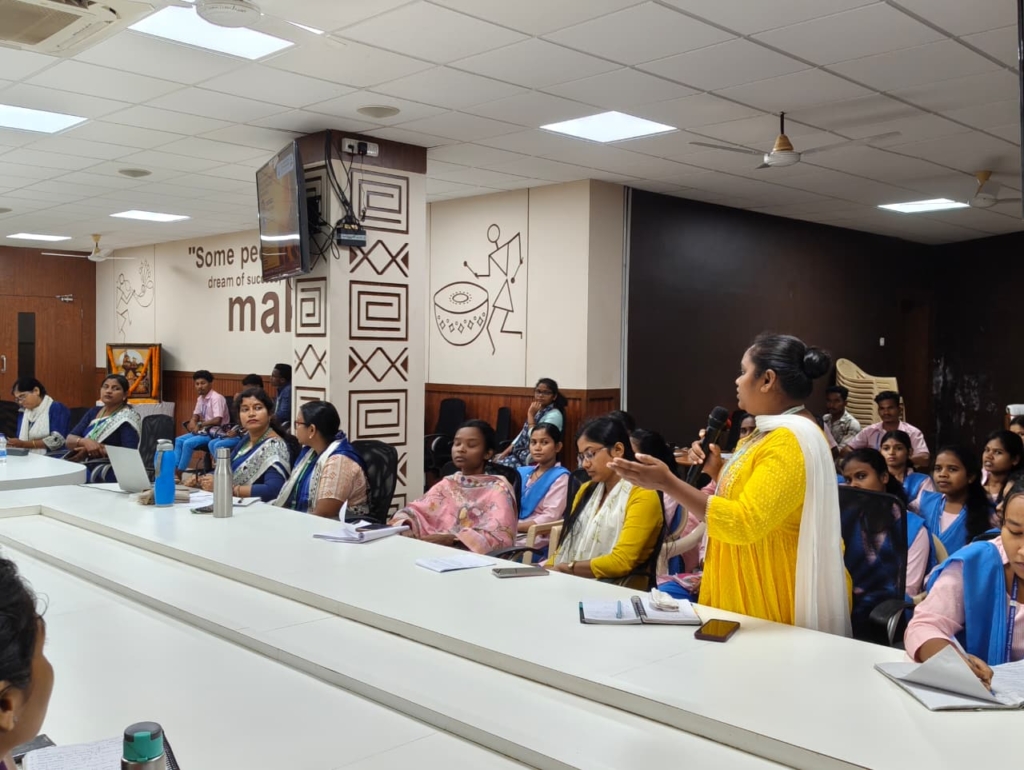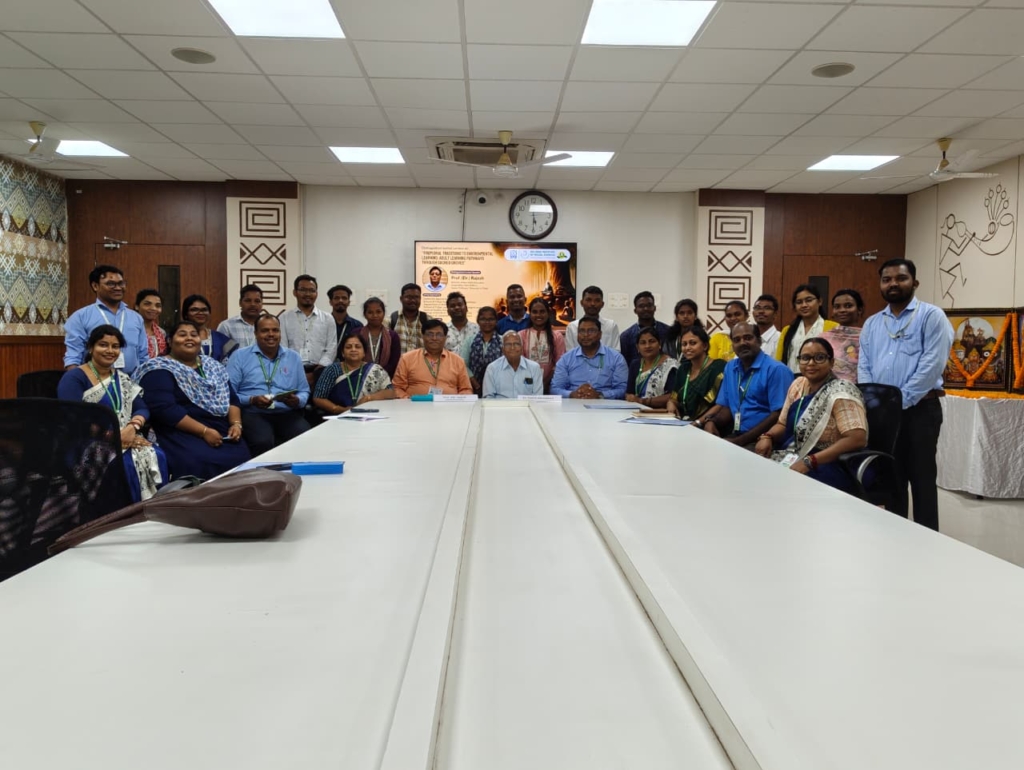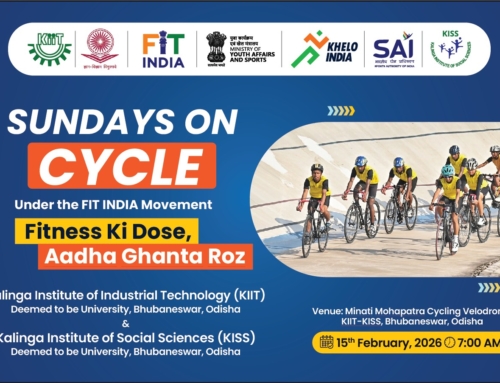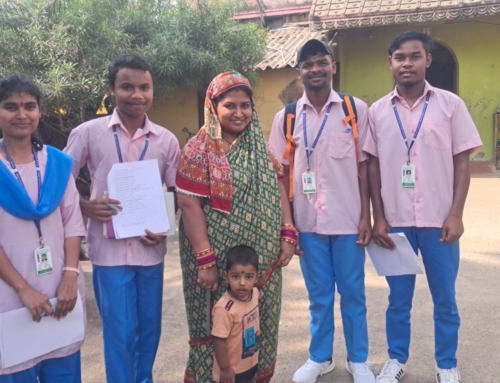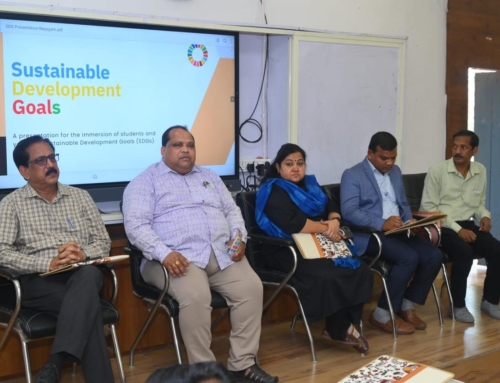The Kalinga Institute of Social Sciences, Deemed to be University, hosted a distinguished lecture on “From Oral Traditions to Environmental Learning: Adult Learning Pathways through Sacred Groves” on 17th September 2025. The lecture was jointly organized by the Centre for Sacred Groves, School of Tribal Heritage and Tribal Indology (STHTI), Department of Anthropology, School of Tribal Legal Studies and Tribal Rights (STLS&TR), and the Internal Quality Assurance Cell (IQAC), in collaboration with the Indian Adult Education Association (IAEA), New Delhi.
The lecture featured Professor (Dr.) Rajesh, Director of the Indian Adult Education Association, New Delhi, and Senior Professor, University of Delhi, as the keynote speaker. The event was also honored by the gracious presence of Shri Suresh Khandelwal, General Secretary (National Level), Indian Adult Education Association, New Delhi, who contributed with insightful opening remarks.
The session began with a warm welcome address delivered by Dr. Manoj Kumar Behera, Associate Professor, KISS-DU, and General Secretary of the Odisha State Chapter of IAEA. Dr. Behera introduced the distinguished guests by highlighting their notable contributions in the domains of education, adult learning, life-long learning, social service, extension education, adolescent education, and substance abuse awareness. His introduction underscored the significance of their lifelong dedication to empowering learners through inclusive educational policies and outreach.
In his opening remarks, Shri Suresh Khandelwal emphasized the growing importance of lifelong learning and the necessity of imparting quality education, particularly to tribal communities. He voiced concerns about the existing gaps in educational accessibility and highlighted the pressing need to collaborate to bridge them. He further assured the gathering that the Indian Adult Education Association is committed to working closely with institutions like KISS-DU to realize the milestones envisaged in the Memorandum of Understanding signed between the organizations. His words set a collaborative and inspirational tone for the proceedings.
The keynote lecture by Prof. (Dr.) Rajesh was the central highlight of the event. In his scholarly yet engaging presentation, he discussed the critical role of tribal education in shaping the future of the nation. He pointed out that educating marginalized communities is not merely a social responsibility but also a prerequisite for inclusive national development. Drawing attention to the wealth of Indigenous knowledge systems, he explained how sacred groves act as cultural and ecological reservoirs that teach lessons in harmony, sustainability, and respect for nature.
Professor Rajesh linked these traditions with the vision of the National Education Policy (NEP) 2020, which emphasizes integrating traditional knowledge with modern learning. He gave practical examples of how financial literacy, digital literacy, and critical literacy are becoming essential in contemporary society and stressed the need to supplement these with sustainable literacy to prepare learners for future challenges.
The speaker also engaged with contemporary social issues, reflecting on the tension between modernity and traditionality. He highlighted challenges faced by tribal communities in balancing cultural identity with modern development pressures. In this context, he also spoke about the need to expand educational and employment opportunities for the transgender community, thereby broadening the scope of inclusivity in education.
Professor Rajesh further elaborated on the purpose of social and economic norms, linking them to the need for renewed awareness about traditional health systems and indigenous healing practices. He observed that these systems carry immense value in protecting community well-being and must be studied alongside modern medicine. He also underlined the importance of andragogy, or adult learning principles, particularly self-directed learning and experiential learning, which empower learners to become active participants in their educational journeys.
In concluding his address, Professor Rajesh drew attention to the necessity of balancing human progress with ecological stewardship. He reminded the gathering that technological advances and traditional wisdom must coexist to sustain the future. With reference to the Sustainable Development Goals (SDGs), he emphasized that global well-being depends on fostering equilibrium between nature and human aspirations.
The lecture was followed by an engaging question-and-answer session. Faculty members, research scholars, and students posed thoughtful questions that reflected their deep interest in the subject. The academic depth of the session was matched by its inspirational tone. Dr. Sujata Acharya, Associate Professor and Dean of the School of Tribal Heritage and Tribal Indology (STHTI), KISS-DU, provided a reflective concluding remarks. She summarized the key themes of the lecture and appreciated the speakers for connecting traditional knowledge systems with contemporary educational challenges in such a lucid manner.
The event came to a close with a heartfelt vote of thanks proposed by Dr. Manoranjan Mohapatra, Head of the Department of Anthropology, KISS-DU. He expressed gratitude to the speakers, organizers, and participants for making the lecture a truly enriching experience.
Overall, the distinguished lecture not only explored the intersections of oral traditions, adult learning, and environmental education but also served as a reminder of the need to protect cultural heritage while embracing modernity. The event reinforced the importance of collective effort in advancing inclusive education, sustainable development, and the empowerment of marginalized communities.

